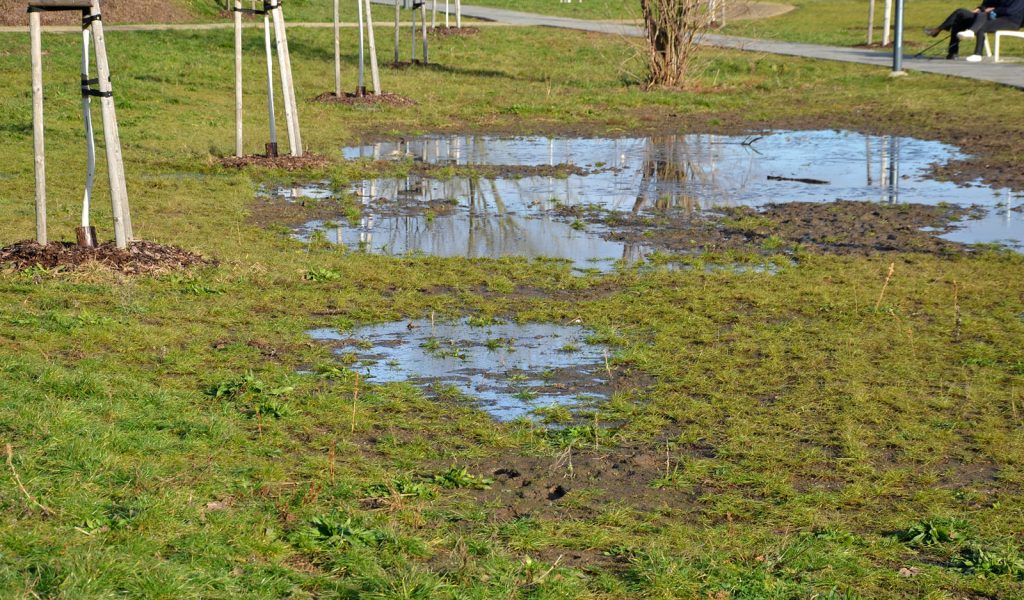Current weather patterns in the Pacific Northwest can significantly impact your garden.
The region is known for its mild, wet winters and cool, dry summers, which can affect plant growth and health.
Excessive rain during the winter months can lead to waterlogged soil, which can damage the roots of plants and lead to disease. Conversely, hot and dry summers can stress plants and cause them to wilt or die if not properly watered. Additionally, extreme weather events such as droughts, heat waves, or storms can cause damage to plants and disrupt the growing season. It is important to stay informed about current weather conditions and adjust your gardening practices accordingly to ensure the health and vitality of your garden.
We’ve got a few tips about dealing with a waterlogged garden area:
Here are some solutions to the issue of waterlogged soil caused by excessive rain in the Pacific Northwest during the winter months:
- Improve drainage: One of the most effective ways to prevent waterlogging is to improve drainage in your garden. This can be done by adding organic matter like compost, mulch, or well-rotted manure to the soil, which will improve soil structure and create air pockets that help water drain away from the roots of plants.
- Plant in raised beds: Planting in raised beds can help keep plants above the waterlogged soil, improving drainage and preventing root damage. Raised beds can also be filled with a soil mixture that drains better than the surrounding soil.
- Choose plants that tolerate wet conditions: If your garden is prone to waterlogging, it’s important to choose plants that can handle wet conditions. Some plants that thrive in wet soil include willows, dogwoods, ferns, and many types of native grasses.
- Provide good air circulation: Good air circulation is important to prevent fungal diseases that can be caused by waterlogging. Prune back any overgrown branches or foliage that is preventing good air circulation and space plants far enough apart to allow air to flow freely around them.
- Use permeable surfaces: Consider using permeable surfaces like gravel, permeable pavers, or mulch in areas where water tends to pool. These surfaces allow water to drain through to the soil, preventing waterlogging.
- Consider installing drainage systems: In severe cases, installing a drainage system like French drains, dry wells, or swales may be necessary to redirect excess water away from your garden and prevent waterlogging.
Give us a call at (360) 876-6567 for guidance on the best drainage system for your property.
